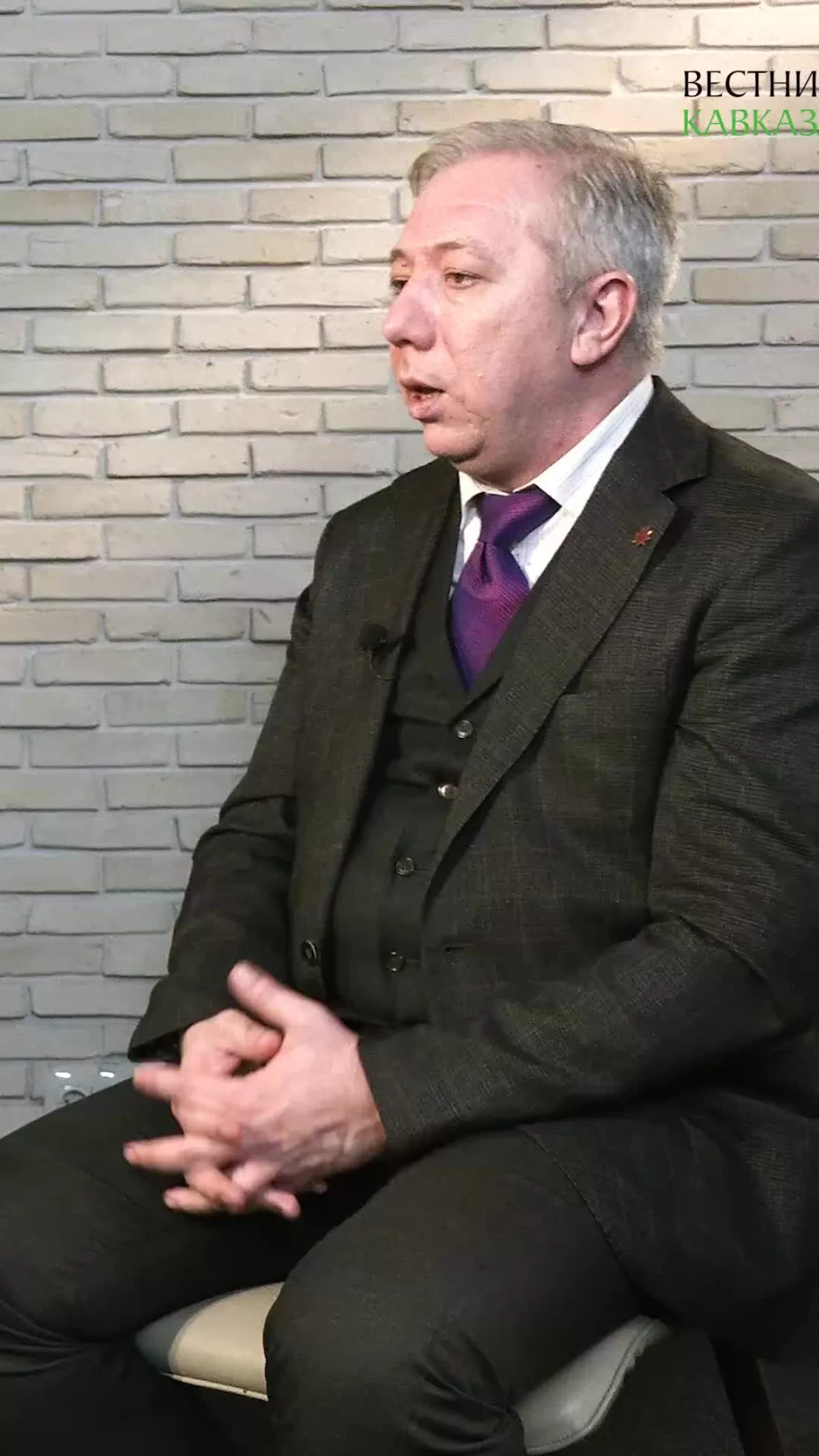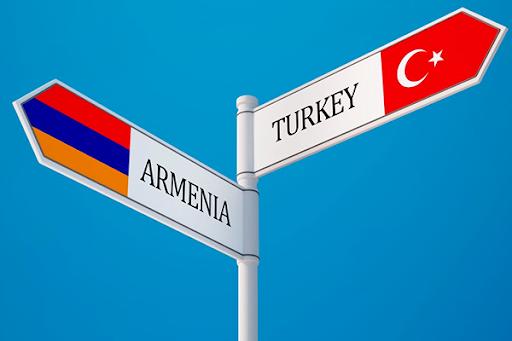Failed manoeuvres of Yerevan Analysts weigh in on Armenia’s peace stalling tactics
“The normalisation of Armenian-Azerbaijani relations is now effectively embedded in the Armenian-Turkish agenda — albeit not as a full-fledged bilateral framework, but at least at the level of ongoing political contacts,” Armenian Foreign Minister Ararat Mirzoyan said in an interview with CivilNet.
“Progress on the Armenian-Turkish track will have a positive impact on the Armenian-Azerbaijani settlement. However, there is an issue — a certain difference in perception — but we do see a willingness to exert a useful, favourable influence,” he noted.
Such statements raise a number of questions. Why does Armenia continue to ignore Ankara’s clear position — repeatedly expressed — that opening the Turkish-Armenian border is impossible without Yerevan meeting Baku’s conditions? What political or geopolitical scenarios is the Armenian leadership counting on by making such claims? And what is the goal of Pashinyan’s team in attempting to play a double game on two fronts simultaneously?

According to Russian-Azerbaijani macroeconomist and control theory expert Kamil Asgarkhanov, at first glance it may seem that Yerevan is trying to establish a separate channel with Ankara in order to pressure Baku through Türkiye and secure a softening of the terms of the peace agreement. However, he says, the real reasons behind these actions lie much deeper.
“The current leadership in Armenia represents the pro-Western camp oriented towards the EU. They are acting within the framework of a broader European Union strategy to redraw spheres of influence in the South Caucasus. We can see that the EU is trying to draw both Yerevan and Tbilisi into its 'Western project', despite the complicated relationship with Georgia, while Azerbaijan, in Brussels’ view, is placed in the 'Eastern vector'. In this way, dividing lines are being drawn — a kind of internal ‘walls’ in the region, something President Aliyev has also repeatedly spoken about,” Asgarkhanov noted.
The reasons behind such a policy, according to the expert, lie in the realm of geoeconomics. Against the backdrop of a global logistics crisis, the land connection between the EU and China via the Middle Corridor is gaining strategic importance. With Russia excluded from this transport chain, attention is now focused on the route that runs through the South Caucasus. The central hub of this route is the Zangezur Corridor.
“Major geopolitical players — the US, EU, Russia, and China — are all seeking control over this segment. This is precisely why the Trilateral Statement following the Second Karabakh War specified that the corridor should be under the protection of Russia’s FSB. However, the process has since seen the interference of both the European Union — represented most actively by France — and the United States, which have been intensifying military cooperation with Armenia. All of this points to growing competition for control over this vital logistical route.

By following the EU’s political agenda, Armenia creates the illusion of an independent foreign policy, projecting an image of attempting to normalise relations with Türkiye. In reality, however, Ankara has long adopted a more independent and non-liberal course, aligning itself with the traditionalist bloc — a group that includes Azerbaijan. Yerevan’s political logic, rooted in outdated assumptions of Western diplomacy, has become increasingly ineffective — particularly in light of Donald Trump’s return and the accelerating shift towards a multipolar world defined by emerging macro-regional blocs.
From Azerbaijan’s perspective, the Armenian leadership — acting in defence of the weakening liberal camp — is losing relevance. It no longer aligns with the new geopolitical realities. Baku, on the other hand, is interested in partnerships with forces capable of building a shared economic space in the South Caucasus — possibly along the lines of a confederation model similar to Benelux. A similar vision has also been voiced by President Ilham Aliyev. Only such a framework would allow the region to independently control its strategic routes and defend its interests without external interference.
Sooner or later, Armenia’s current leadership will be forced to leave the political stage. Otherwise, the development of the region will remain stalled. Key players — Iran, Russia, and Türkiye — are already advocating for a constructive reconfiguration of the situation. Not because they seek escalation, but because the implementation of major infrastructure projects is impossible without political settlement and alignment of interests.
This is precisely what the current struggle is about. Pashinyan’s team is incapable of rising to these challenges — it is outdated and no longer meets the demands of the present era. New political forces in Yerevan will be more flexible and oriented towards engagement with Baku,” said Asgarkhanov.

Russian political analyst and editor-in-chief of the Poistine portal, Ruslan Aysin, also believes that the Armenian side is deliberately stalling the settlement process by attempting to fragment the overall agenda — separating the Turkish track from the Azerbaijani one and manoeuvring between two centres of power.
“This is a fairly transparent strategy — to create the illusion that an agreement with Türkiye can be reached while ignoring Baku’s interests, thereby driving a symbolic wedge into the Ankara–Baku tandem.
In reality, however, the positions of Türkiye and Azerbaijan towards Armenia are unified. They act in coordination, and their interests align. Yerevan’s attempts to exploit supposed differences in rhetoric — if they exist at all — are merely a distraction tactic. Armenia may be hoping to introduce an element of uncertainty into the Baku–Ankara relationship, but such expectations are naïve and politically unviable,” Aysin stressed.

Georgian analyst and PhD in Political Science, Teimuraz Garishvili, emphasises that in Tbilisi, Yerevan’s actions have long been transparent and easy to read. For years, Baku has been offering peace in an effort to ensure sustainable development in the South Caucasus, yet Armenia continues to systematically resist.
“One would think that clarity has already been reached on all points of the peace agreement, and Azerbaijan is clearly demonstrating its readiness for dialogue. Yet once again, Yerevan unleashes a web of political intrigue, distorting agreements and making declarative statements. Türkiye has repeatedly stated that without a comprehensive peace with Baku, discussing the opening of the border is pointless. Nevertheless, the Armenian Foreign Minister chose to use the Antalya Diplomacy Forum as a platform for yet another political performance.
At the same time, Mirzoyan’s arguments are virtually baseless — Ankara’s position remains unchanged. In Yerevan, however, there seems to be a belief that current tensions in Türkiye–Israel relations and other geopolitical factors might prompt Ankara to make certain concessions — or even exert pressure on Baku. There is also some hope pinned on a few political forces in Türkiye advocating for the opening of the Armenian-Turkish border. But such groups are extremely marginal. In fact, the Antalya forum only reaffirmed that Ankara’s policy is consistent, and Yerevan’s attempts to manipulate the situation are ineffective,” Garishvili concluded.








